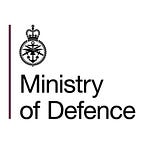Teaching Ukrainians to survive and be lethal
Lieutenant Jones is a platoon commander from Trident Company. A company of British Army Reservists who have volunteered to train Ukrainians as part of Op Interflex.
Launched in June 2022, Op Interflex is a UK-led military training programme for Ukrainian recruits. Delivered by British Army soldiers alongside partner nation military, so far 17,000 Ukrainians have received training via Op Interflex.
Trident Company are the first full company of Army Reservists to conduct training on Op Interflex. Here Lieutenant Jones reflects on being part of Trident:
“This task is something that the Reserves are built for. When this came up, I jumped at it basically. Mainly because of having some sort of real-world impact with the war in Ukraine; to actually go in and train people who are going off to fight in a war. Straight away I jumped on it. As reservists this was one of the greatest opportunities to actually have; to meet these people and teach them to survive and be lethal in a 21st century battle space was a massive opportunity to get involved with.”- Lieutenant Jones, Trident Company
What is your role on Op Interflex?
As platoon commander I’m mainly dealing with the management of the platoon of the training team. So, my job is making sure that the training meets the training objectives and the outputs delivered and that people know where they’re going, what they’re doing.
I’ve also got a team of five linguists. So, it’s managing them, making sure they’re where they need to be and also incorporating their work schedules and their days off. So it’s mixing that civilian and military together to try and make sure we get the most out of the training.
This is the first time a full company of Army Reservists have delivered training via Op Interflex, how does Trident Company differ from the Companies of Regular Army who have conducted the training before?
I don’t think there is any difference between what we can delivery and the Regulars per se. However, I’d say when we first met the Ukrainians what we got across to them was: we all volunteered for this. We weren’t told that we were doing this; similar to how all the Ukrainians volunteered for this themselves. So, we’ve got a bit of a mutual respect, I think, for each other in that way.
We’ve got IT people, farmers we’ve got all sorts of, every kind of background in the platoon. We can relate to them.
This is our first rotation of Ukrainians. It’s first time this camp’s been used for it. So, we’ve come here from scratch essentially and starting to build it up and then it’s the first time reservists have been properly been involved with this. So, it’s a lot of firsts here you know, but it is going well.
Whilst it is a series of firsts for the Army Reservists, Op Interflex has just reached its one year anniversary of operation, so what have you taken from the training conducted before?
We mobilised a couple of months ago, and as part of our pre- deployment training we have done qualifications to get us up to scratch and part of that was seeing other units and how they train. So, we spoke with the 1st Battalion, The Princess of Wales’ Royal Regiment and we’ve seen the Norwegians train their troops and that was massively beneficial. We’ve taken on all the advice that they’ve given us.
Taking that knowledge, from the other TDUs [Training Development Units] was massive, absolutely massive. And we hit the ground running essentially.
You joined the OTC [Officer’s Training Corps] whilst at university and commissioned with the 3rd Battalion, The Royal Welsh, British Army Reserves in 2020 how does being part of Trident Company on Op Interflex rate in terms of your Reservist career?
This is the best thing I have done as a Reservist, absolutely 100%. It is rewarding work. It’s tough work, but we’re having a genuine impact on these people, and they’ll go back [to the war] better.
It’s rewarding at the end of the day. We are getting to meet loads of different people and we are having a genuine impact on them.
For example, we are teaching them how to use a tourniquet and then they will apply that knowledge when they are dealing with a wound in real life. We are teaching them how to conduct fire and movement which is going to save their lives at the end of the day.
I think it’s a massively rewarding and enjoyable experience. We’ve already had an affect on them, and we’ve been here less than two weeks and they’re taking on everything.
